
According to the World Bank, Chile has a fairly low poverty rate at 14.4 percent. Chile’s problem though lies in the country’s high rates of income inequality, especially in education.
Salesian missionaries working in Chile focus their efforts on providing education and social services to poor, at-risk youth. At Salesian schools, universities and youth centers throughout the country, youth can access an education as well as the skills and resources necessary to break the cycle of poverty. As a result of the vocational and technical education provided by Salesian programs, Chilean youth are more likely to find stable employment and improve their standard of living.
Salesian schools, social development services and workforce development programs throughout Chile are helping to break the cycle of poverty while giving many hope for a more positive and productive future.
Operating for more than 15 years in Santiago, Chile’s capital and largest city, the Don Bosco Foundation has successfully educated and provided social services to more than 15,000 children and adults. Responding to a rise in the homeless population in the city, Salesian missionaries at the foundation created programs in partnership with other local social welfare programs to meet the basic needs of both adults and children living on the street while providing opportunities for education. Participants are provided shelter, nutritious food, clothing, medical care and an education. Educational programming includes vocational and technical training to help those in need find and retain stable employment. Counseling and recovery services are also offered.
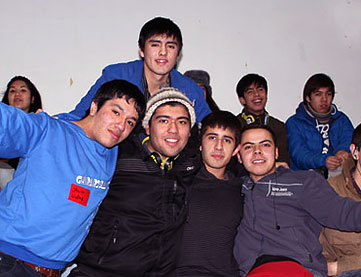
Salesian missionaries working in Chile have expanded their reach to the northern region of the country where they recently opened a new school in the city of Calama and began offering a series of professional training courses for disadvantaged youth. A pastoral program is also offered at the school for those interested in entering the Salesian vocation.
Salesian schools equip students with a foundational education and the skills they need to compete in the local labor market by offering courses in carpentry, farming, electrical and mechanical engineering, computers and more. Salesian schools also build partnerships with local businesses to help youth gain employment after graduation. This further helps the local economy by providing a well-trained labor force.
Salesian missionaries also offer agriculture education at the Salesian Agricultural School in Linares. The school has an important pig breeding unit that provides professional courses for the production of Piedmontese-type sausages. The courses are led by professionals Marco Violi and his wife Olivana. Linares is predominantly an agricultural area of the country and depends heavily on farming to sustain its economy. Many of the families living in the area suffer from the effects of devastating poverty. Salesian agricultural schools provide both classroom education and hands-on agriculture and livestock training on a working farm on the school campus.
In 2016, 1,690 new first year students were welcomed at the Salesian-run Silva Henriquez Catholic University located in Santiago. Nearly 64 percent of these students (1,106) were admitted to the university free of charge. Salesian missionaries living and working in the region offer the free university education to students who are unable to afford university education. The goal is to encourage higher learning, help students gain the education needed for a career and encourage graduates to contribute back to their communities.
Silva Henriquez Catholic University has been successful in providing the education and skills necessary to help its graduates either directly enter the workforce or continue on for advanced degrees. Providing free tuition supports the university’s main objective to provide educational programs that increase the professional skills of its students while contributing to the socio-economic development of the country.
In January 2013, the Don Bosco Institute in Punta Arenas celebrated 100 years of service. The Salesian institute provides education and technical skills to poor and at-risk youth, helping them find stable employment and a path out of poverty for themselves and their families.
In the early days of Don Bosco Institute, the city of Punta Arenas had close to 15,000 residents but no educational facility offering technical skills to youth. Technical training was needed to help youth learn skills and trades that could lead to employment. Don Bosco Institute filled that need by providing technical training in addition to preschool, primary and secondary education.
Don Bosco Institute began by offering courses in printing, carpentry, boot making and mechanics. Seven years after its foundation, the institute added courses in primary education to serve the huge development in the city at that time, as well as the populations that had begun to spring up along the Avenida Bulnes and in the suburb of Prat. Throughout the school’s history, it has grown and expanded to meet the needs of its students, giving them access to new skills and trades to remain employable in the marketplace.
For youth who lack the resources to attend Chile’s universities, Don Bosco Institute provides the opportunity to receive job skills training. Students today can choose from a variety of courses including mechanics, electronics, telecommunications, tourism services and accounting. In dual education programs, students complete their education with a chance to gain work experience at the same time.
In 2000, Don Bosco Foundation began offering programs for the homeless in Santiago. Responding to a rise in the homeless population in the city, Salesian missionaries created programs to meet the basic needs of the homeless while providing opportunities for education. Partnering with other local social welfare programs, the foundation’s programs serve both adults and children living on the streets. Educational programming includes vocational and technical training to help those in need find and retain stable employment.
Once homeless participants connect with the foundation, they are provided shelter, nutritious food, clothing, medical care and an education. Counseling and recovery services are also offered. To date, more than 15,000 children and adults have accessed services at the foundation.
In 2015, heavy rains turned to intense flooding that caused power outages and blocked roads in the northern desert regions of Chile. Salesian missionaries living and working in the region responded to the situation with aid for the flood victims, many who lost everything. The missionaries operate the Salesian Cristo Redentor Industrial School located in Copiapó, the capital city of the Atacama Region, the area most affected by the flooding.
Salesian missionaries provided shelter at the Salesian school for families in need as well as clothing and food aid. Students from the pastoral group at the school did what they could to assist those in need with close to 100 students helping the relief operations by collecting and distributing aid to members of the affected communities. Salesian teachers also worked to help staff members who suffered loss.
Students at La Cisterna (“The Tank”) Youth House in Santiago spearheaded a fundraising effort in May 2016, to finance the equipment for a youth band. Thanks to their efforts and support of Salesian Missions, their project was a success. Students were able to purchase two electric guitars and amplifiers, a bass guitar and amplifier, a set of cymbals, a bass drum, a sound console and complete set of speakers, and all the necessary accessories.
In addition, an alumnus of La Cisterna commissioned the design for a special acoustically insulated room for practice sessions. Through future performances, band members will raise the additional funds required to complete the room.
First established in 1969, La Cisterna serves economically disadvantaged parish and local youth for whom opportunities — educational, recreational and social — are otherwise scarce. Every day, more than 300 children participate in sports, art, dance and other activities that help develop their self-esteem, confidence and connections with others. And now, thanks to the initiative of 28 of their peers, they can explore new avenues of expression through an inaugural youth band.
Band members wasted no time in scheduling or performing public concerts. They performed in a musical competition honoring Don Bosco’s 201st birthday; played classic Chilean rock before a crowd of 700 during Fiestas Patrias (a Chilean national holiday); and entertained another 600 people during a concert at the Salesian College in Santiago. They also play at Sunday Mass and other parish- and oratory-related events.
After a year of planning and construction, Salesian missionaries in partnership with Aurora Williams, the Minister of Mining Activities in Chile, have recently inaugurated the Salesian Industrial Technical College in Calama, a city in the Atacama Desert and capital of El Loa Province in northern Chile. The college is part of the broader Salesian network of educational programs in the country and was built in the Gustavo Le Paige district, one of the most vulnerable of the city.
The new college campus was built thanks to an alliance between the Antofagasta Industrial Association and the Salesian Province and was financed by the CODELCO and El Abra companies in Chile. The college started with 490 students and offers technical and vocational education for the industrial mining sector providing specific courses in mining, industrial mechanics and industrial electricity. Education is free for its students and classes are offered in both English and Spanish.
The Don Bosco Foundation in Santiago created the Registro Circuito de Calle (Register of Streets Circuit) app with the goal of helping to improve intervention for street children. The app was developed by the Don Bosco Foundation in collaboration with Fundación País Digital of Microsoft Chile and DonaTec, an online donation program for the nongovernmental agency, CDI Chile.
The app allows users to update mapping within a territory, providing intervention teams with online information that will increase their knowledge of the territories and enable support to reach street children more effectively.
It also helps teams better plan their actions and social operations on the road so they can choose the most effective strategies for intervening with youth who are living in even the most hidden areas. In addition, the app will characterize the territories to better show the transit of minors as well as track what they do and what they are exposed to in those areas.
In the first four months of use, the app has helped Salesian staff reach and serve 10 percent more children. The app is being considered for use at the national level.
From Chile

From Chile
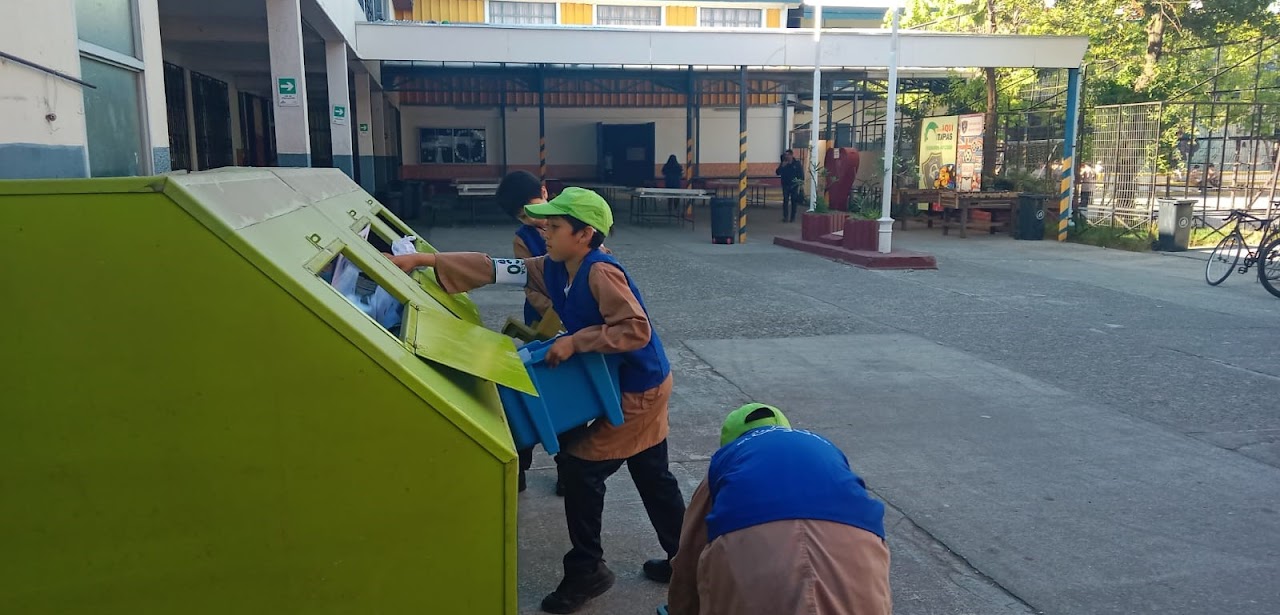
Salesians adding environmental education, activities to curriculum. NEW ROCHELLE, NY (June 5, 2025) Salesian Missions, the U.S. development arm of the Salesians of Don Bosco, joins humanitarian organizations and the international
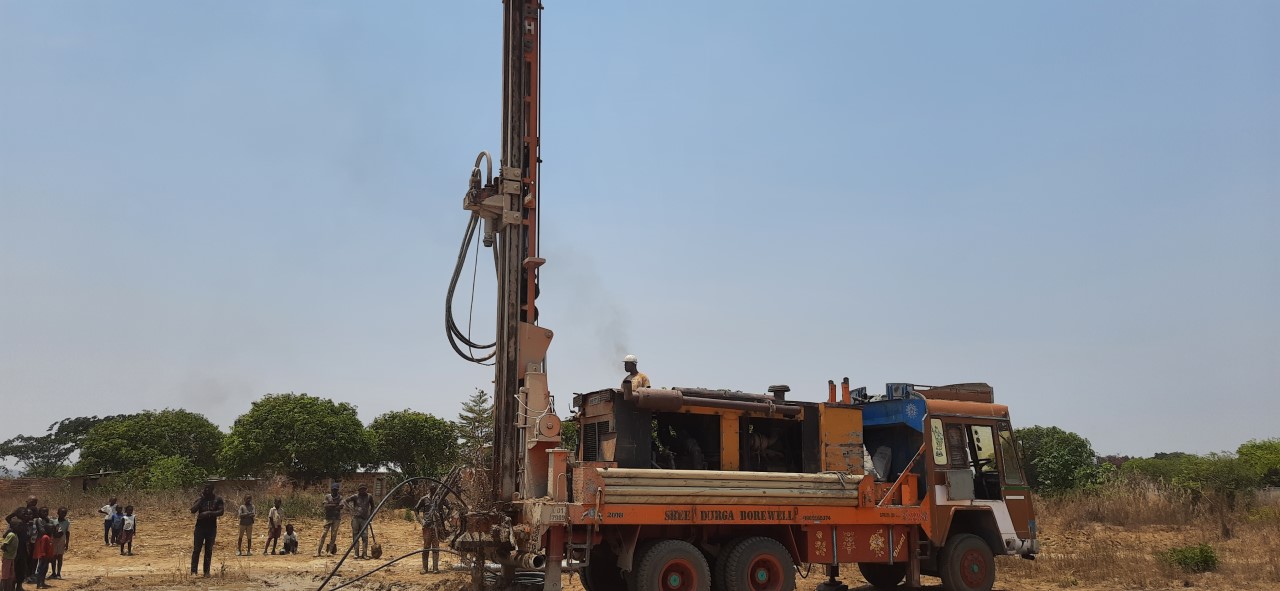
2024 World Water Day theme is ‘Water for Peace’. NEW ROCHELLE, NY (March 22, 2024) Salesian Missions, the U.S. development arm of the Salesians of Don Bosco, joins humanitarian organizations and countries around the globe in c
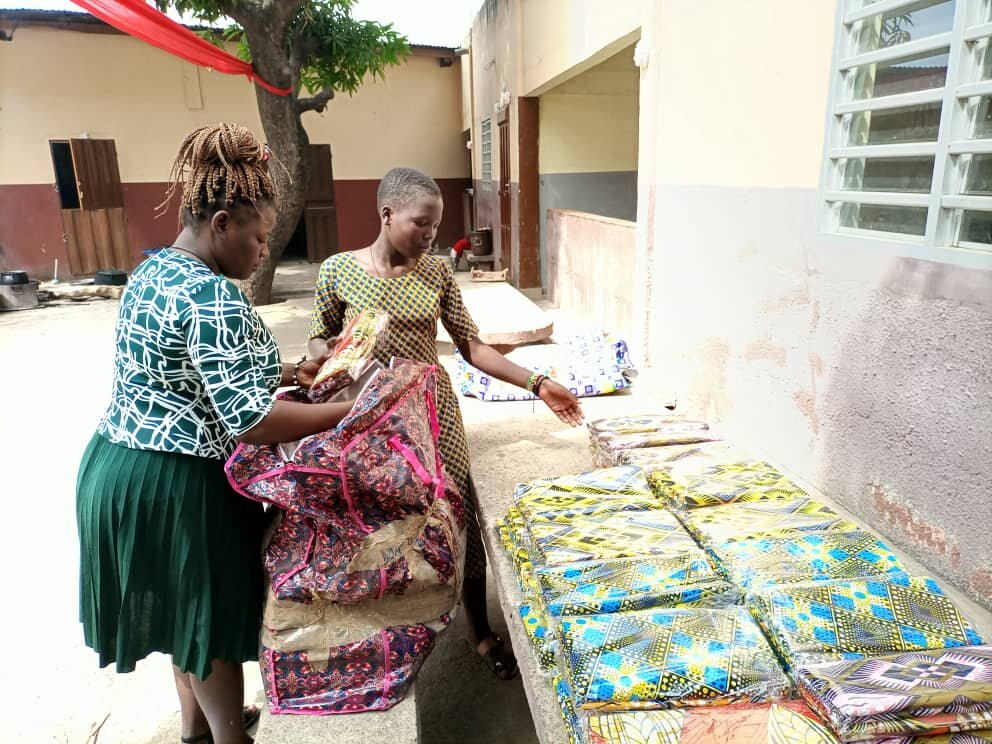
Day acknowledges pain suffered by children who are victims of physical, mental and emotional abuse. NEW ROCHELLE, NY (June 4, 2023) Salesian Missions, the U.S. development arm of the Salesians of Don Bosco, joins humanitarian orga
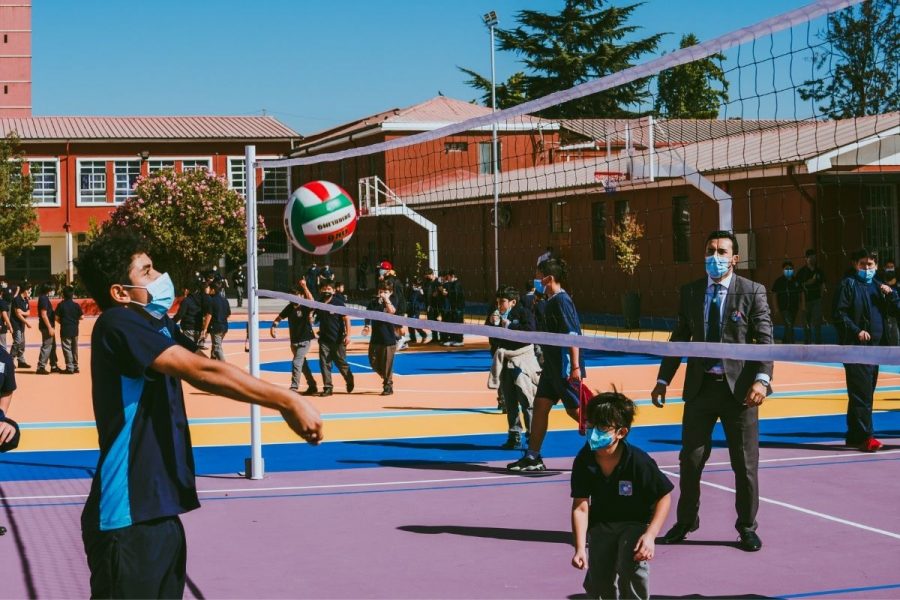
2023 theme focuses on the impact of sports on sustainable development and peace. NEW ROCHELLE, NY (April 6, 2023) Salesian Missions, the U.S. development arm of the Salesians of Don Bosco, joins humanitarian organizations and the
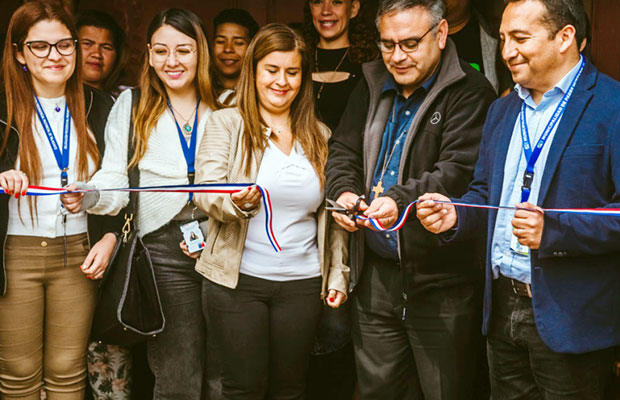
Until recently, Alesio lived on the streets of Santiago, Chile with his wife and two young children. But thanks to Salesian missionaries at Casa Pinardi, all four now enjoy safe shelter … and renewed hope for brighter future
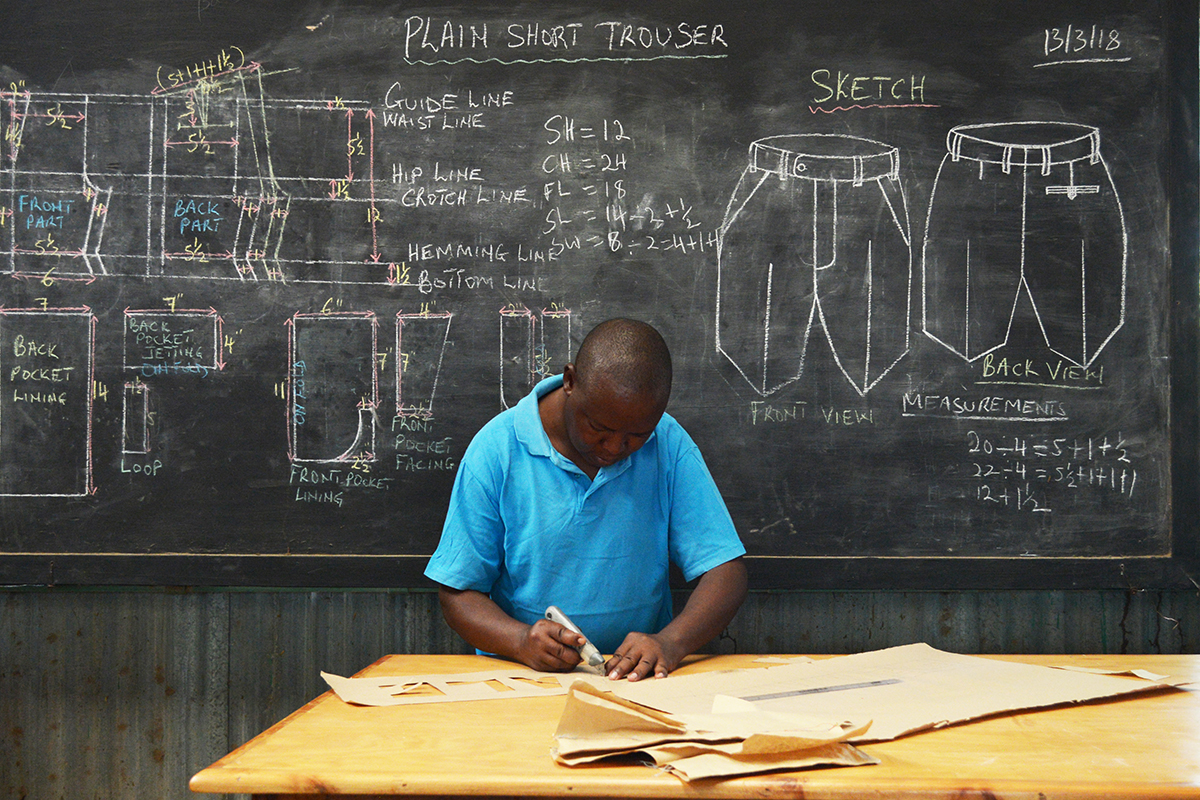
Salesian teachers rise to the challenges they face in some of the poorest countries around the globe. NEW ROCHELLE, NY (Oct. 5, 2022) Salesian Missions, the U.S. development arm of the Salesians of Don Bosco, joins humanitarian or
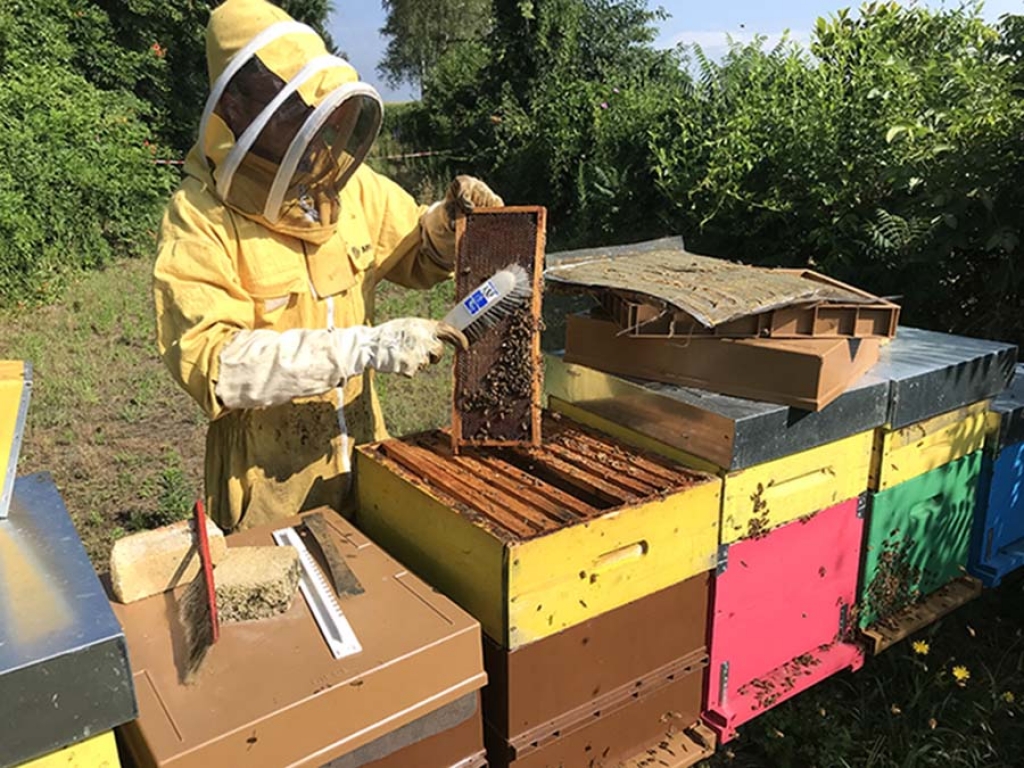
Programs focus on access to educational opportunities that match the local employment needs. NEW ROCHELLE, NY (Jan. 24, 2022) Salesian Missions, the U.S. development arm of the Salesians of Don Bosco, joins humanitarian organizati
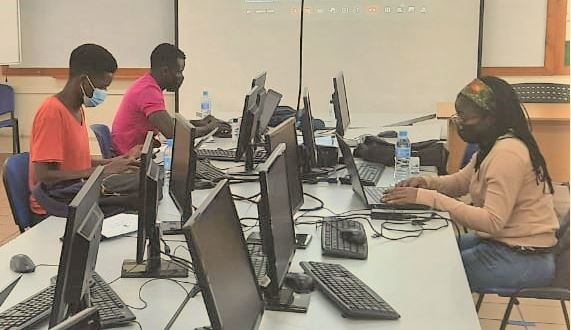
Salesian missionaries educate more than 1 million youth in more than 130 countries. NEW ROCHELLE, NY (Oct. 5, 2021) Salesian Missions, the U.S. development arm of the Salesians of Don Bosco, joins humanitarian organizations and co
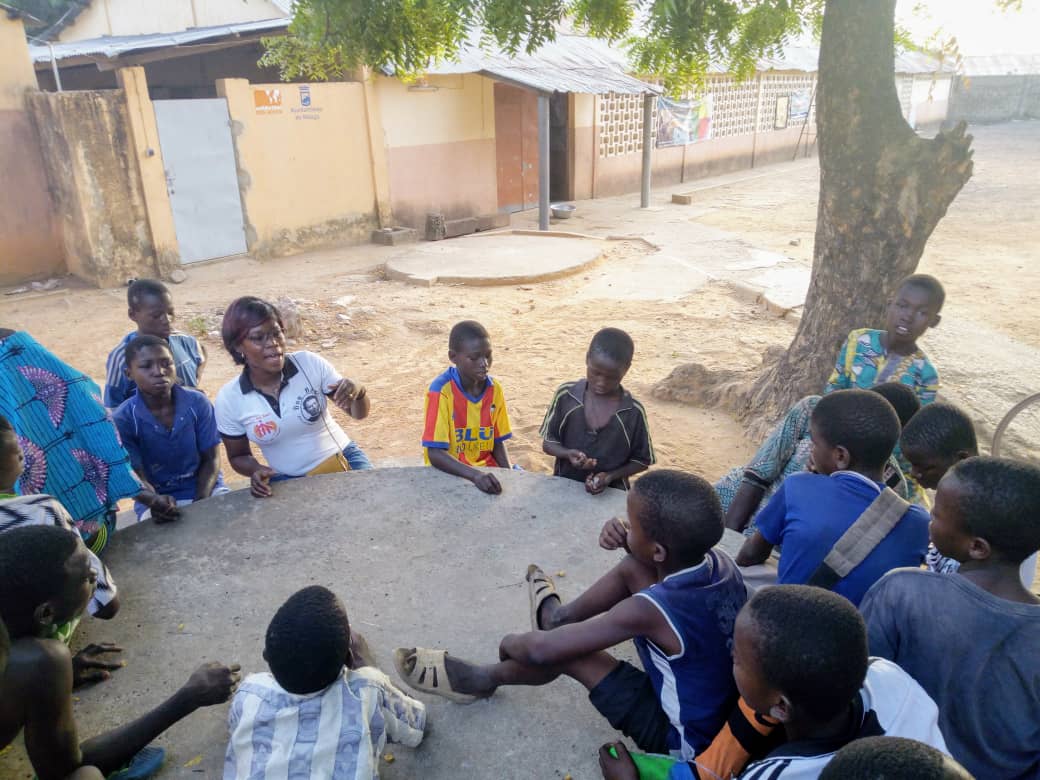
Programs in Benin, Chile, India, and Liberia support this year’s theme of empowering and educating youth to ensure their voices are heard. NEW ROCHELLE, NY (Aug. 12, 2020) Salesian Missions, the U.S. development arm of the Sales
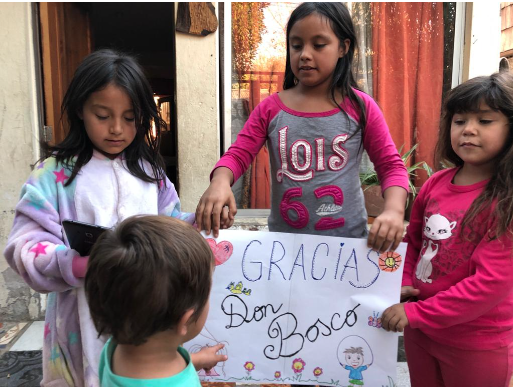
The organization is currently serving nearly 160 street children across more than 15 municipalities in Santiago. NEW ROCHELLE, NY (July 8, 2020) Don Bosco Foundation has continued to provide services under its “Care and Preventi
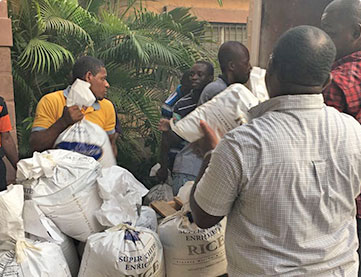
Salesian Missions includes agriculture in its vocational training programs – to ensure that youth of Rwanda learn better agricultural practices as well as keep the school self-sustaining in the face of the country’s food shortages.
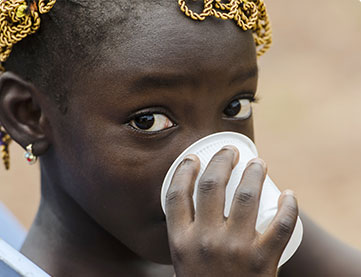
Salesian Missions includes agriculture in its vocational training programs – to ensure that youth of Rwanda learn better agricultural practices as well as keep the school self-sustaining in the face of the country’s food shortages.
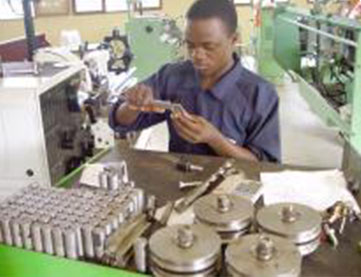
Salesian Missions includes agriculture in its vocational training programs – to ensure that youth of Rwanda learn better agricultural practices as well as keep the school self-sustaining in the face of the country’s food shortages.